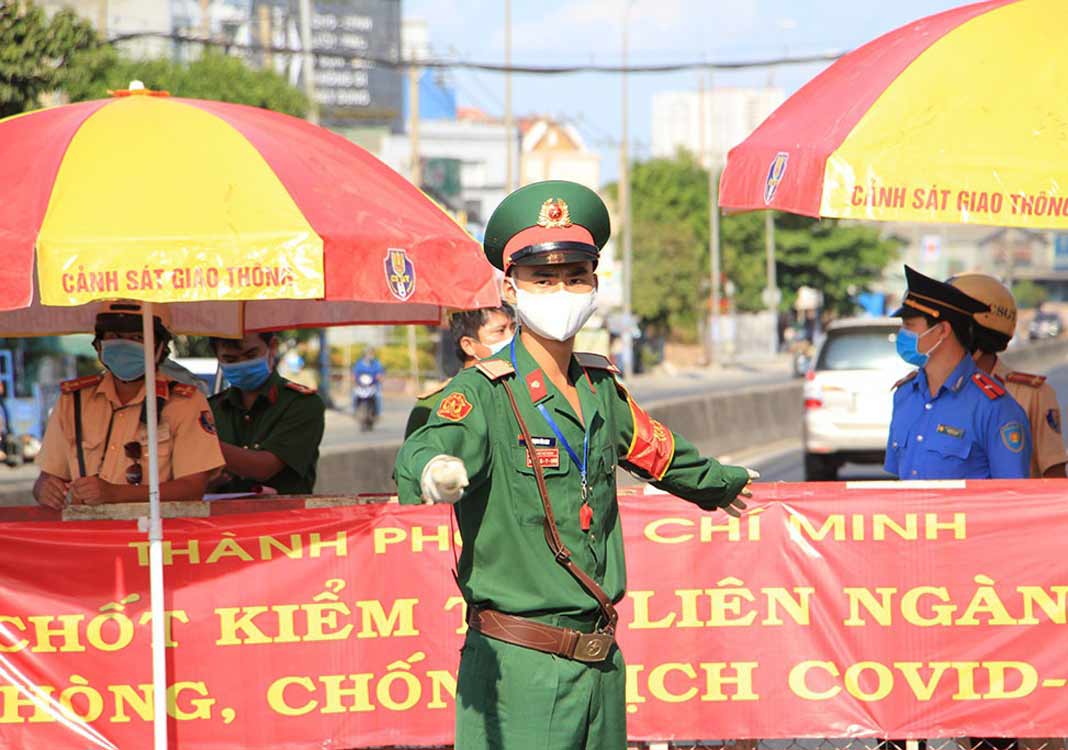HCMC – The HCMC Party Committee on July 22 issued Directive 12 tightening its anti-Covid measures in line with the prime ministerial Directive 16 to slow the spread of the coronavirus.
The directive comes as the city has recorded nearly 49,000 cases in the current outbreak and has been implementing the stay-at-home mandate under the prime minister’s Directive 16 over the past 14 days after 37 days of social distancing in line with the less rigorous Directive 15, the local media reported.
According to the municipal Party Committee, the trajectory of the pandemic in the city remains extremely unpredictable as new daily cases are still high, especially in areas on lockdown; more cases are getting worse and deaths are escalating and the city’s human resources have been exhausted.
To stop the spread of the virus, the new directive of the ordered the enhancement of inspection and supervision of the compliance with anti-virus measures.
Specifically, residents in areas on lockdown must distance themselves from others. They can only leave their homes for medical emergencies or food and other essential goods twice a week at supermarkets and markets inside the areas, using coupons issued by local authorities.
In some extremely-high-risk areas, residents are banned from leaving their homes and the local authorities will deliver food and other products to them instead.
Those undergoing quarantine must follow the regulations and not leave their rooms or contact others.
Members of households whose family members are asymptomatic coronavirus carriers and direct contacts of Covid-19 cases undergoing home quarantine must not leave their homes as well.
The city has also suspended non-urgent production and business activities as well as construction sites. Banks and stock market facilities are allowed to operate at an adequate level to meet the demand. Branches and transaction offices should ask their employees to work in shifts.
Only businesses in essential sectors are allowed to operate, including healthcare, pharmaceuticals, food, electricity, water and gas supply and transport of essential goods.
Moreover, only businesses that can arrange accommodation and meals at work for their staff are allowed to remain operational. Employers must arrange vehicles to transport their workers between their concentrated accommodation facilities and their factories.
Traditional wet markets must reduce their capacity to 30%. Only traders of essential commodities and food are allowed but they must take turns to visit the markets.
Additionally, the State agencies must arrange for employees to work in shifts at their headquarters.
Only goods transporting vehicles provided with QR codes, those of State agencies and the frontline forces and those transporting residents in the city to their hometowns are allowed to pass through checkpoints.
The municipal steering committee for Covid-19 infection prevention and control was assigned to ask the competent agencies, especially the healthcare sector, to coordinate with localities to draw up specific plans to combat the pandemic, including those on prevention, testing, quarantine and treatment, and speed up the Covid-19 vaccination.









